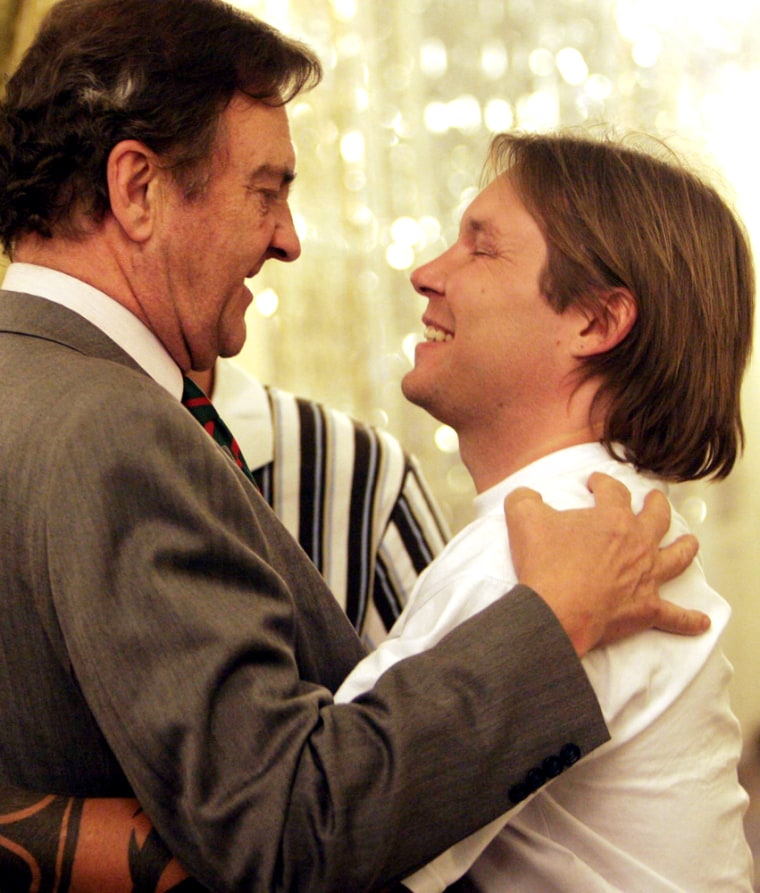Two Swedish construction workers who had been convicted of espionage and imprisoned in Iran for taking photographs of military installations were released Monday after being pardoned, a Swedish lawmaker in Tehran said.
The men, Stefan Johansson and Jari Hjortmar, were handed over to Swedish diplomats and lawmakers at Iran’s Foreign Ministry on Monday night, lawmaker Urban Ahlin told The Associated Press by phone after leaving with the two.
“Everything went according to plans,” said Ahlin, the deputy chairman of the Swedish parliament’s foreign affairs committee. “We are very happy and satisfied.”
Iranian Justice Minister Jamal Karimirad said last May that the two had been convicted of photographing military installations and sentenced to three years in prison apiece. Foreign Ministry spokesman Mohammad Ali Hosseini said earlier Monday that the sentence had been only two years.
Hosseini said Iran had decided to release the men early to conform with the government’s “humanitarian policy,” IRNA reported.
By releasing the prisoners, Iran may be trying to defuse anger in Europe over its seizure last month of 15 British sailors off the Iraqi coast. Iran held the sailors for 13 days before releasing them under intense international pressure.
Swedish media have reported that the Swedes, both construction workers in their 30s, had taken pictures of military buildings and telecommunications equipment on Qeshm, an Iranian island in the Strait of Hormuz about 870 miles south of Tehran.
When their sentences were announced last year, the Swedes’ Iranian lawyer Muhammed Hassan Azemati said they had taken the photographs, but “they have not done any action intentionally, and their actions have not been organized.”
Ahlin, who had campaigned for their release, said the men had traveled to Iran to demonstrate a new technique of casting cement floors.
Ann Johansson, Stefan’s wife, credited Ahlin with securing the Swedes’ release.
“He has been our mainstay during this time and the authorities down there asked that he be part of the negotiations,” she told Sweden’s TV4.
